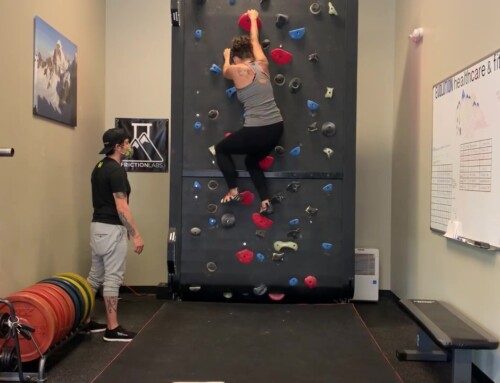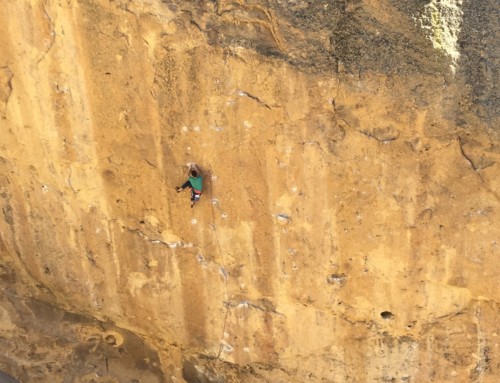Author: Em Wooden
Over the past several years summer camp registrations have been dropping drastically. Fewer than half of the students who should be eligible for Oregon’s Outdoor School program are able to attend. Schools are cutting recess from the curriculum. Opportunities for kids to get out and stretch their legs are waning, and you should be concerned.
There are many benefits to exercise for people of all ages, and as far back as the 1950s people were researching the link between the brain and physical activity. At that time Jean Piaget studied the connection between cognition and exercise in kids. More than half a century later researchers are still fascinated by this link. In 2014 NPR posted an article lamenting the decrease in physical activity at elementary schools. It suggested that kids think and multitask much more effectively when they get over an hour of exercise each day. One study that was referenced discussed the physical change that takes place in a person’s brain when they are engaging in sufficient physical activity; scans showed a correlation between the length of time that kids exercised and their brain activity during a multitasking test afterwards.
![]() The same thing seems to be true in adult brains. A 2015 study published in Mayo Clinic Proceedings found that moderate intensity exercise, particularly cardio respiratory fitness, correlates with high cognitive function. The researchers tested healthy people with an average age of 21 after bouts of exercise, and discovered that they performed significantly better than their peers in the control group (the members of the control group did not exercise at all before the test, while the other participants exercised at light, moderate, or vigorous intensity for thirty minutes). It seems that exercise continues to be important for brain health as we age. While kids are likely to want to get outside and play, adults may find that the easiest way to get moving is to hit the gym.
The same thing seems to be true in adult brains. A 2015 study published in Mayo Clinic Proceedings found that moderate intensity exercise, particularly cardio respiratory fitness, correlates with high cognitive function. The researchers tested healthy people with an average age of 21 after bouts of exercise, and discovered that they performed significantly better than their peers in the control group (the members of the control group did not exercise at all before the test, while the other participants exercised at light, moderate, or vigorous intensity for thirty minutes). It seems that exercise continues to be important for brain health as we age. While kids are likely to want to get outside and play, adults may find that the easiest way to get moving is to hit the gym.
Mental acuity is not the only benefit the brain reaps from exercise. Serotonin, a neurotransmitter which acts as the body’s natural antidepressant, is produced when a person works out. This is one reason why exercise is important for people battling stress, anxiety, and depression. Around 25 percent of the body’s serotonin stays in the brain (the other 75 percent hangs out in the gut), and it has a profound influence on mood. Aerobic exercise in particular boosts the level of serotonin in the brain, so people who bike, run, swim, or walk for at least three hours each week are likely to feel better emotionally than those who do not. If three hours sounds like a lot, keep in mind that it is fine to start with however much exercise sounds doable and work your way up from there.
What else happens to the brain physiologically during exercise? Blood flow increases, ushering oxygen into the brain and waste out of it. Acetylcholine receptors are preserved, which stimulates synapses. There is also a lot going on in the brain when a person is physically active that is not completely understood. For instance, there is a negative correlation between exercise and Alzheimer’s. Scientists are still working to figure out why exercise makes such a big difference in terms of dementia. They are definitely making progress on that front: a study published in the British Journal of Sports Medicine found that aerobic activity “significantly increased the hippocampal volume” in subjects. The hippocampus is responsible for verbal memory, and that particular study focused on women who were already showing risk factors for dementia. According to a blog posted on Harvard Medical School’s website, people who get sufficient exercise have a larger medial temporal cortex and prefrontal cortex than those who do not. Yet again, these areas are linked to thought and memory. Even just six months of adequate exercise can cause those cortexes to grow.
In addition to the numerous brain-related benefits of exercise, it is important to remember that physical activity can also lower blood pressure, prevent stroke and heart disease, regulate sleeping patterns, and assist with achieving or maintaining a healthy weight. Studies have shown that, while aerobic exercise seems to have the strongest correlation with brain health (particularly when it comes to verbal memory), the type of exercise in which a person engages is not nearly as important as just getting active. Take a walk, hop on your bike, sign up for a kettlebell class…it doesn’t matter, just get out there. Some people are goal-oriented and will thrive on working out independently, while others will be motivated by group classes or working with a personal trainer. Figure out what works for you and get moving; your brain is in love with physical activity.
Sources:
About. Retrieved from http://www.outdoorschoolforall.org/about-2/
Brinke, L.F.T., Bolandzadeh, N., Nagamatsu, L.S., Hsu, C.L., Davis, J.C., Miran-Khan, Karim, & Liu-Ambrose, T. (2014, April 7). Aerobic exercise increases hippocampal volume in older women with probably mild cognitive impairment: a 6-month randomized controlled trial
Bruzek, A. (2014, Sept 29). More Active Play Equals Better Thinking Skills For Kids. Retrieved from http://www.npr.org/sections/health-shots/2014/09/29/352455278/more-active-play-equals-better-thinking-skills-for-kids
Clark, Danny. Beyond GPP: The New Model of Performance Training. Retrieved from http://breakingmuscle.com/natural-movement/beyond-gpp-the-new-model-of-performance-training
Garvin, K.S. (2015, Sept 22). How Does Exercise Help the Brain?. Retrieved from http://www.livestrong.com/article/410524-how-does-exercise-help-the-brain/
Godman, H. (2015, Oct 29). Regular exercise changes the brain to improve memory, thinking skills. Retrieved from http://www.health.harvard.edu/blog/regular-exercise-changes-brain-improve-memory-thinking-skills-201404097110
Loprinzi, P.D., Kane, C.J. (2015, March 4). Exercise and cognitive function: a randomized controlled trial examining acute exercise and free-living physical activity and sedentary effects [Abstract]. Mayo Clinic Proceedings, 90(4). Retrieved from http://www.ncbi.nlm.nih.gov/pubmed?term=25746399
Turcotte, M. (2013, Aug 19). The Effects of Exercise on Serotonin Levels. Retrieved from http://www.livestrong.com/article/22590-effects-exercise-serotonin-levels/





